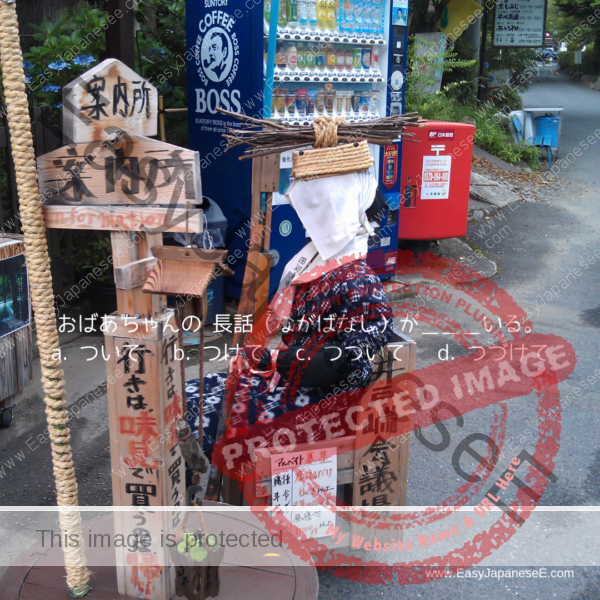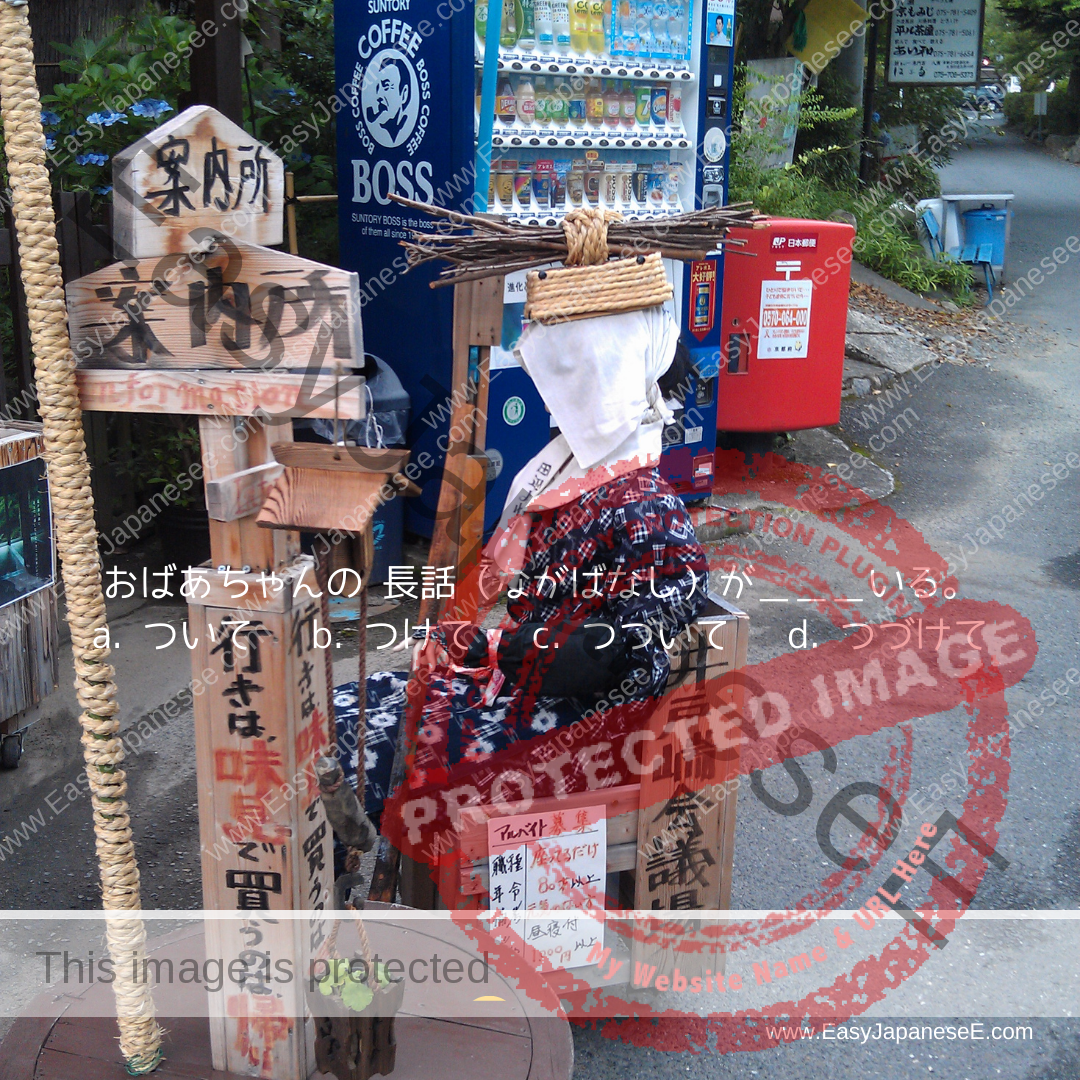
おばあちゃんの 長話(ながばなし)が___いる。
a. ついて b. つけて c. つづいて d. つづけて
The intended meaning is “Grandma’s long story is still going” and the correct answer is c. つづいて. It is the story that is going, so you need to choose the intransitive verb that has the meaning of”to continue.” つづけて/つづける is a transitive verb which means “for somebody to continue ….” So if you want to use つづけて, you need to rewrite the sentence as: おばあちゃんは 長話(ながばなし)を続(つづ)けている。
Yesterday I talked about [verb stem] + つづける and when つづける is used with a verb stem, this transitive characteristics seems to be weakened. However as I mentioned at the end of yesterday’s post, with rain and snow, ふり+つづく (transitive) is the more common expression.
If you are finding the difference between transitive verbs and intransitive verbs, I have a set of grammar exercise for you. Please read more on this page.
EasyJapaneseE’s Basic Grammar Exercise Modules
Following short modules are available for subscription! Click the name of a module for more information.

